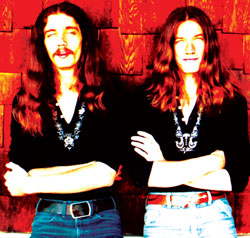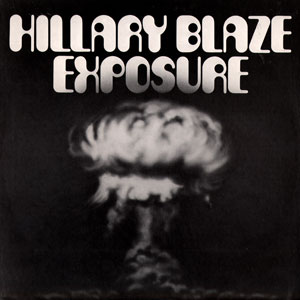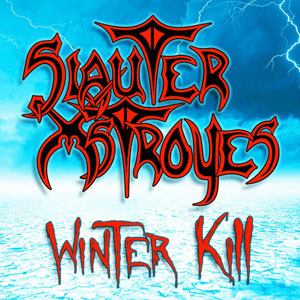Paul and Ray were now beginning to take the whole thing seriously and Paul brought in a friend from College as second guitar. This was Bill Hinde. When Paul and Ray finally decided that they really wanted to go for it, Chris had decided that he was going to University in Cardiff and the band was not any longer his main priority. Paul at this time had no idea what he wanted to eventually do after College and although also close to contracts to play football professionally (Plymouth, Bournemouth and Southampton) he decided to go with the music. Chris then left and was replaced by another College friend of Bill and Paul called Bob Cooke. They carried on like this for a while and then Paul decided he didn’t want to sing anymore and concentrate on writing and the bass. It was then decided to bring in a mutual friend called Phil Goddard to take over vocals. Thus the band became a 5 piece. Now things became more serious and real gigging started in earnest. Mainly small halls, pubs and clubs. Paul’s writing style had now changed and they were no longer a straight blues band. It was at this time that Paul wrote Primitive Man (still his favourite). Most of the songs were written by Paul, but Bob and Bill came up with the music for Beyond the Grave, (Paul lyrics) most of Murders Lament and some of Frustration. One interesting fact is that Paul nearly always wrote with his bass guitar and then built from there. By this time the band was becoming well known within the locality and beyond as they were very different to the most successful bands from the area e.g. The Troggs and Dave Dee, Dozy Beaky, Mick and Titch (extremely successful pop bands with many hit singles). They were now moving up the ladder and bigger gigs and Colleges were now taken on. Paul originally came up with the name Jerusalem as it was the only piece of music (Elgar) that he liked and thought had some passion about it during school assemblies. Later on Jerusalem used part of the piece as an intro for their live performances (Rock version of course).
Paul’s elder sister Zoë was based in London at this time, working for Record Companies and as a presenter on one of the first live chat shows about music, TV and Films ( A Whole Scene Going). It was around this time that Zoë first heard the band and was so shocked, that she decided to talk to some music people in London. A well known person in the business at the time Micky Dallon decided to put Jerusalem into Pye Studios for a couple of demos. Thus we have the very first recording of Primitive Man and Beyond The Grave. Although nothing happened immediately, things began to move fast. Zoë knew many of the top bands of that period and counted many as her friends. It was at this time that she ran into Ian Gillan again who was now with Deep Purple who had just exploded onto the scene with a No 1 single Black Night and the huge No. 1 album Deep Purple In Rock. Zoë had known Ian from his days with Episode Six. Deep Purple were in Southampton or Bournemouth in the middle of a tour and she invited Ian back to Salisbury to stay over at her mother’s house, before going back to London. This was Paul’s first meeting with Ian. When Ian walked into the house Paul was actually playing Black Sabbaths first album and Ian asked who it was because he liked it. Strange to think that a number of years later he would actually front the band for a short while!
Over the next few months there was some interest shown in the band by a number of people in the business, but nothing concrete. On a later visit by Ian to Salisbury Jerusalem were doing a gig at Salisbury College with Uriah Heep (their then bass player Paul Watts was a friend of Bobs from Andover). Ian decided to come and watch. He liked what he saw and decided to become involved with the band. Strangely enough, at the same time, Gerry Bron decided to take over Uriah Heep, so their journey began at the same time. The next thing that happened was Ian brought Roger Glover down to Salisbury to record some demos. Roger had just bought a Revox 4 track machine and was beginning to experiment, so in actual fact this was probably the beginning of Rogers’s entry into production. He had also just bought a second-hand Mini which turned out to have a faulty battery, so there was much pushing of his car that weekend. At this time the band were rehearsing in a derelict farm cottage in the middle of farmland near Wilton. They called it Pig Mansion (later to be a song by Pussy) and Deep Purple also used the place once for rehearsing and writing before a British Tour The farm was owned by a member of the Johnny Walker whisky family. It was a good experience for the band working with Roger and Ian. No-one knows what happened to the tapes but it was the beginning of a more professional direction. John Coletta, one of Purples managers then began to show an interest in Jerusalem, but Ian decided he wanted to do it himself. Thus Ian and Zoë became the managers of Jerusalem. It was around this time that Phil decided the band was not his future, which meant finding a new singer. It was decided to advertise in the music press and hold auditions in London. There were about 40 replies. The audition was meant to be in a Church Hall, but once they found out it was a Rock Band they refused to let the band in. It was then decided to cross London to Belsize Park and use Bill’s brothers flat. They lost many of the applicants on the way and others just couldn’t be bothered to continue. They ended up with about 10 at the apartment. At the end of the day it came down to 2 singers, One had an exceptional voice the other a natural showman. The showman got the nod, which was Lynden. Ian then decided to record a Jerusalem album before approaching Record companies. At this time Jerusalem already had a number of songs ready for recording – Primitive Man, I See The Light, She Came Like A Bat From Hell, Beyond The Grave, Murderers Lament, Frustration. Lynden was very much a lyricist rather than musician, so Paul and Lynden then sat down together at Paul’s mothers house and eventually came up with – Hooded Eagle, When The Wolf Sits and Midnight Steamer.
Ian and Zoë were now a couple and had bought a house in Pangbourne, Berkshire. Ian was also now the owner of Kingsway Recorders Studio in London (previously the legendry De Lane Lea Kingsway Studio where many greats had recorded including Hendrix and The Beatles) The Jerusalem album was to be recorded at Kingsway, so Jerusalem camped out at Ian’s house for the period. The engineer was Louie Austin.
The album only took a few weeks to record. It was hard work but also some incredible good times. The atmosphere was really unique. The bands first proper recording session and Ian’s first introduction to Producing. It was at this time that Ian signed the band to the famous NEMS Agency for gigs. So Jerusalem started gigging all over the UK whilst Ian was talking to Record companies. At the end of the day it was between EMI’s Harvest label (their rock label) and Decca’s Deram label (their rock label). Head of A&R at Harvest was Nick Mobbs (later head of A&R EMI and the first to sign the Sex Pistols) and at Deram it was Sam Hamilton. Both came up with similar deals, but Ian decided to go with Deram. The night that Sam decided he wanted to sign Jerusalem was the night they were playing at the famous Red Lion, Leytonstone with Status Quo. Status Quo who had been a singles chart band were now back to doing what they really wanted to do – Boogie. It was a great night all-round. Jerusalem had now aquired Deep Purples first P.A.system (J M Marshall 1000watt) and had 200watt (doctored) purple coloured J M Marshall stacks. They were regular visitors to Jim Marshalls shop in Ealing, London. Out of interest, these stacks eventually got stolen from Pig Mansion, so if you ever see any old purple coloured cabinets and 200 watt amps, have a look on the bottom, it may say Jerusalem!



